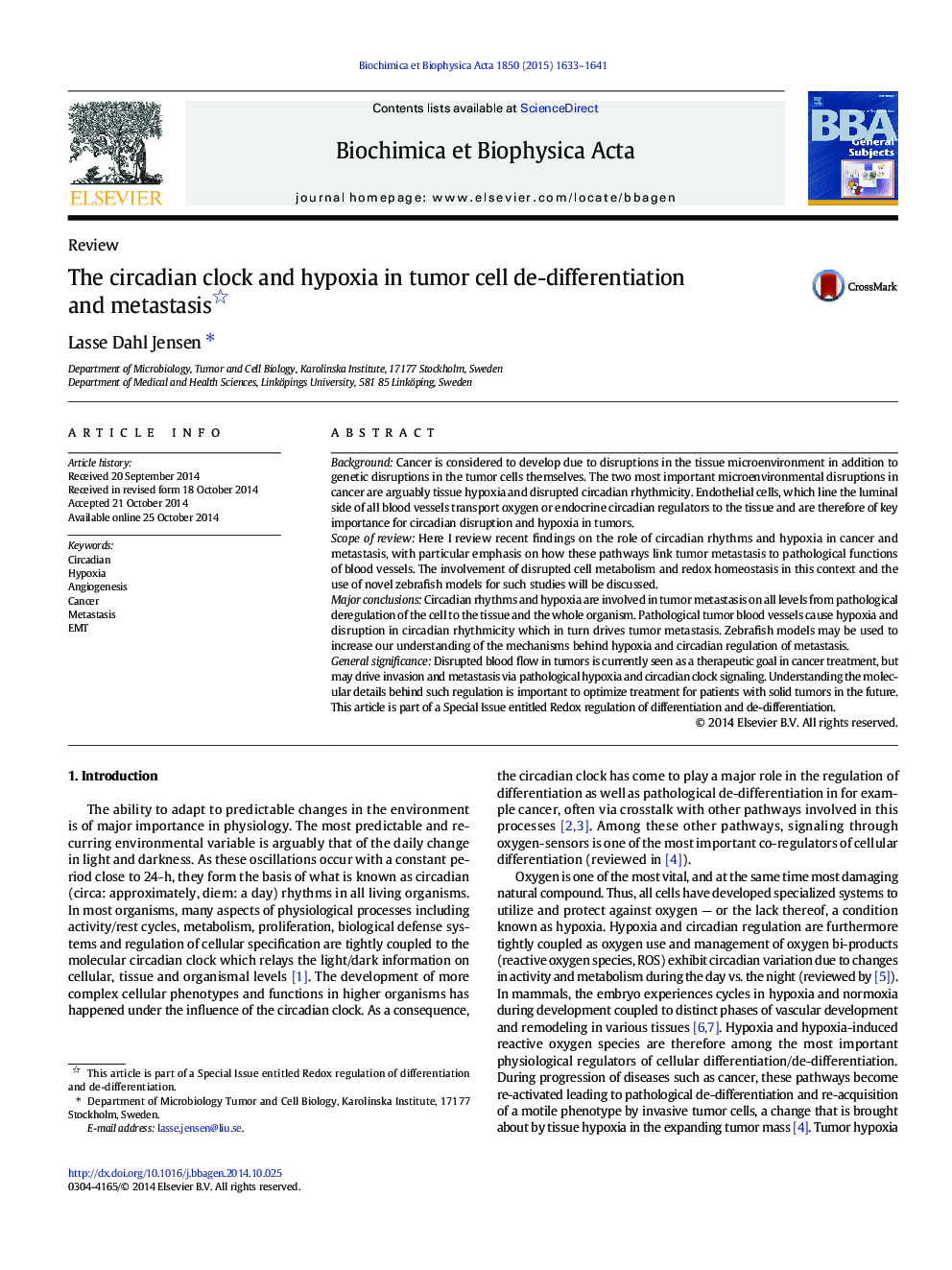| کد مقاله | کد نشریه | سال انتشار | مقاله انگلیسی | نسخه تمام متن |
|---|---|---|---|---|
| 1947444 | 1054604 | 2015 | 9 صفحه PDF | دانلود رایگان |

• Circadian clock disruption and hyoxia are important during metastasis.
• Pathological tumor vessels lead to hypoxia and blunted circadian rhythmicity.
• Zebrafish models may provide new insights into early stages of tumor metastasis.
• Hypoxia and disruption of the circadian clock may lead to reversible EMT.
• Normoxia and circadian rhythms may be important for MET at the metastatic niche.
BackgroundCancer is considered to develop due to disruptions in the tissue microenvironment in addition to genetic disruptions in the tumor cells themselves. The two most important microenvironmental disruptions in cancer are arguably tissue hypoxia and disrupted circadian rhythmicity. Endothelial cells, which line the luminal side of all blood vessels transport oxygen or endocrine circadian regulators to the tissue and are therefore of key importance for circadian disruption and hypoxia in tumors.Scope of reviewHere I review recent findings on the role of circadian rhythms and hypoxia in cancer and metastasis, with particular emphasis on how these pathways link tumor metastasis to pathological functions of blood vessels. The involvement of disrupted cell metabolism and redox homeostasis in this context and the use of novel zebrafish models for such studies will be discussed.Major conclusionsCircadian rhythms and hypoxia are involved in tumor metastasis on all levels from pathological deregulation of the cell to the tissue and the whole organism. Pathological tumor blood vessels cause hypoxia and disruption in circadian rhythmicity which in turn drives tumor metastasis. Zebrafish models may be used to increase our understanding of the mechanisms behind hypoxia and circadian regulation of metastasis.General significanceDisrupted blood flow in tumors is currently seen as a therapeutic goal in cancer treatment, but may drive invasion and metastasis via pathological hypoxia and circadian clock signaling. Understanding the molecular details behind such regulation is important to optimize treatment for patients with solid tumors in the future.This article is part of a Special Issue entitled Redox regulation of differentiation and de-differentiation.
Journal: Biochimica et Biophysica Acta (BBA) - General Subjects - Volume 1850, Issue 8, August 2015, Pages 1633–1641